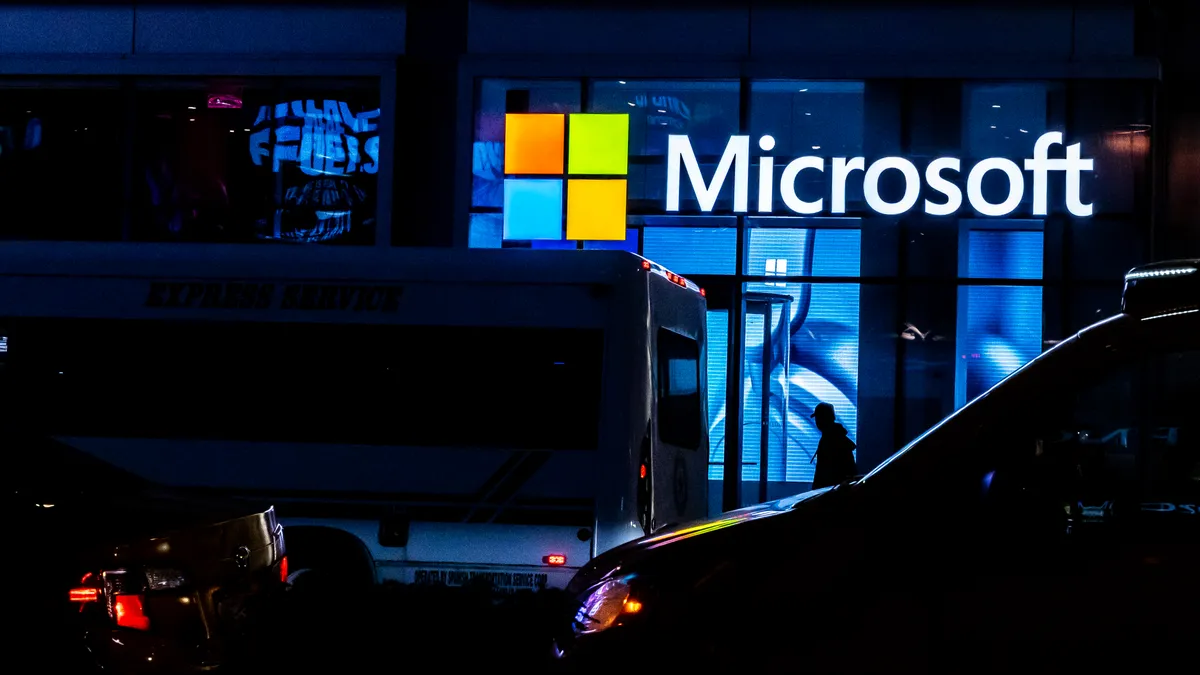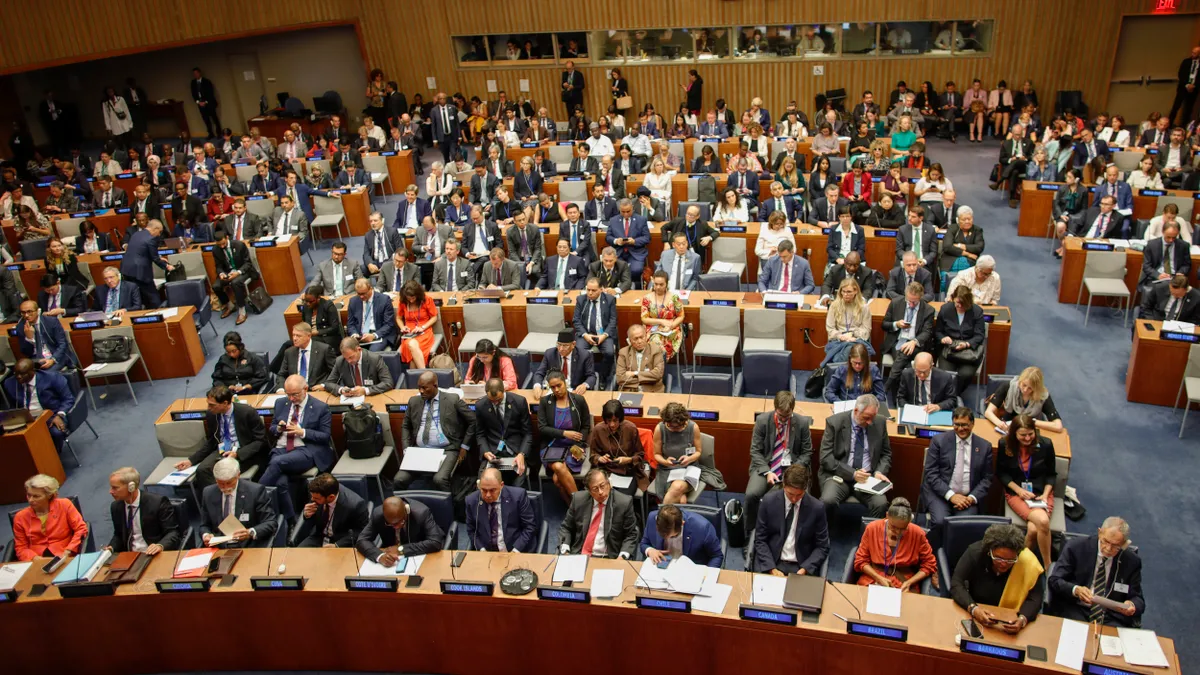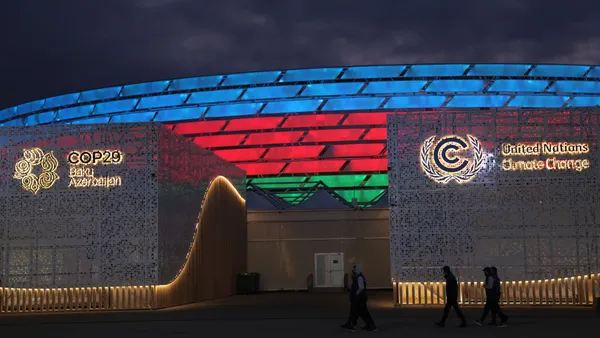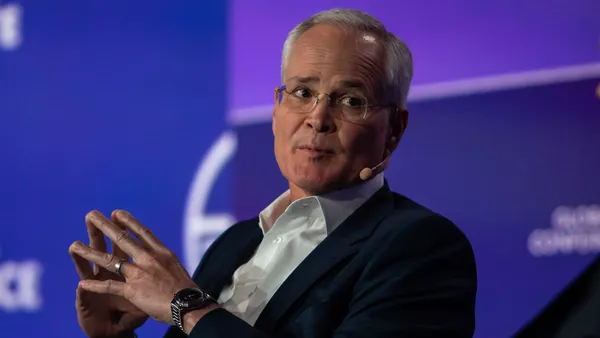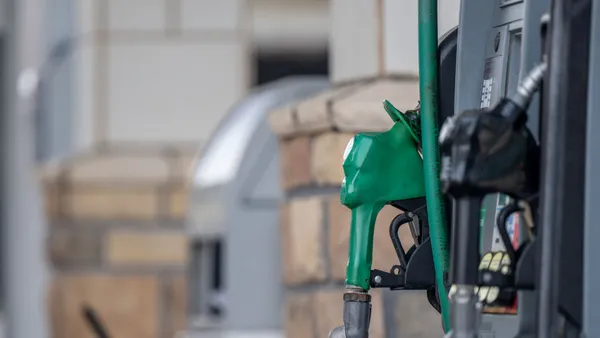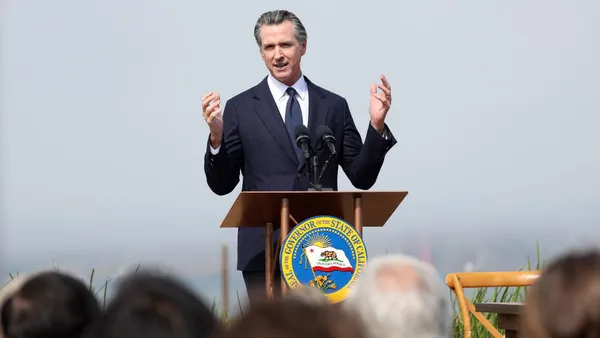Dive Brief:
- Microsoft has signed a deal with ocean-based carbon removal company Ebb Carbon, which will capture and store up to 350,000 tonnes of carbon dioxide for the tech giant over the next decade, per a Thursday announcement.
- Microsoft contracted the initial removal of 1,333 tonnes of carbon dioxide, with options to purchase an additional 350,000 tonnes over the next 10 years, according to the press release.
- The agreement is a part of Microsoft’s larger plan to become carbon negative by 2030, which it plans to accomplish through reducing carbon emissions, increasing its use of carbon-free electricity and using such carbon removals, according to the company’s latest environmental sustainability report. Over 96% of the company’s carbon footprint is comprised of scope 3 emissions, with large chunks coming from purchased goods and services, capital goods and the use of its sold products, according to the report.
Dive Insight:
Ebb will use an electrochemical ocean alkalinity enhancement method — which mimics a natural ocean process to increase water’s ability to draw down carbon — to remove carbon dioxide from the atmosphere during the lifecycle of the Microsoft contract. The credits will be measured, reported and verified using the ocean alkalinity enhancement protocol from carbon registry Isometric, the first standard to be established for such a carbon removal pathway.
Brian Marrs, Microsoft’s senior director of energy and carbon removal, said in the press release that Ebb’s technology leverages the ocean’s “massive surface area” and natural carbon removal processes “to durably remove and store large volumes of atmospheric carbon.”
“The ocean is a critical part of the carbon cycle,” Marrs said. “We are pleased to collaborate with Ebb to both accelerate the scientific foundation for ocean-based carbon dioxide removal and explore the potential of ocean-based carbon removal solutions at scale.”
Carbon removal companies and startups have increasingly turned towards the sea as another viable option to store captured carbon dioxide. Earlier this year, carbon capture startup Captura raised $21.5 million to scale its technology, which extracts carbon dioxide from the ocean. At the time, Captura said its technology turns captured carbon dioxide into lower emission fuel or stores it permanently through processes like geologic sequestration, noting that carbon dioxide is around 150 times more concentrated by volume in the ocean compared to the air.
The ocean alkalinity enhancement method being used by Ebb looks to mimic the chemical processes that occur through the slow degradation of rocks, the release said. As rocks are weathered, alkaline minerals from the rocks are released into the ocean and turn seawater carbon dioxide into bicarbonate and carbonate ions, which then allows the ocean to store additional carbon dioxide.
Ebb speeds up this process by creating an electrochemical reaction to separate seawater into acidic and alkaline streams, before returning the alkaline solution back into the ocean, the company explained. The company said the process also helps to reverse the increasing acidification of the ocean due to climate change.
Microsoft has explored several pathways for carbon removals in deals this year. In addition to the Ebb deal, the company has signed carbon removal credit deals for agroforestry, forest management and soil-based carbon farming in 2024 alone. The tech giant also helped launch a coalition for carbon removal contracting with Google, Meta and Salesforce earlier this year to contract the nature-based removal of 20 million tons of carbon dioxide by 2030.
Last month, Pennsylvania-based nuclear power plant Three-Mile Island said it will restart production in 2028 in response to a 20-year power purchase agreement it signed with Microsoft, which aims to buy enough carbon-free power to match the tech company’s data center consumption in the regional transmission network.
“Microsoft is setting a powerful example with its commitment to becoming carbon negative by 2030 and by using its purchasing power to accelerate the most promising climate solutions,” Ebb CEO Ben Tarbell said in the release. “This agreement underscores the potential of Ebb Carbon’s technology to contribute meaningfully to gigaton-scale carbon removal in the years ahead.”



